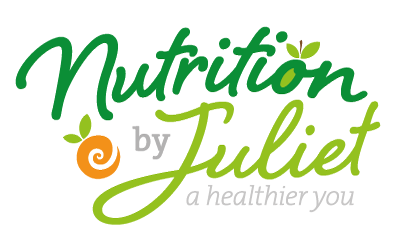
Microbiome is the term used to refer to the collection of bacteria (and viruses and fungi) which live in and on our bodies (our microbiota), and their genes. Conversationally it is often used interchangeably with microbiota.
Microbes are found mainly on our skin and in our intestines with the biggest numbers found in the colon or large bowel, and added together they can weigh roughly as much as your brain. Although we are taught from a young age that microbes are something to avoid because they can cause disease, and of course there are pathogenic bacteria and viruses which are bad for us, science is now discovering more about the human microbiome and its positive effects on our health.
A healthy microbiome will have the right balance of different species, ‘friendly’ bacteria, which produce short chain fatty acids beneficial not only for our gut health including good digestion, nutrient absorption and regular bowel movements, but also for our metabolic health (think weight regulation, insulin sensitivity and blood sugar levels, or cholesterol levels and heart health), hormonal and mental health. There are complex interactions between the gut microbes, our intestines, our intestinal lining and our immune system (70% of which is found in the gut).
So, with such a wide-ranging influence over different aspects of human health, you should definitely care about the condition of your microbiome and what influences it. Very early factors including whether you are born naturally or by caesarean section play a role in the make-up of a baby’s microbiome depending on whether the baby is exposed to the mother’s microbiome in the birth canal. Babies born by c-section tend to have a microbiome more similar to the mother’s skin microbiota, but it is generally thought that the microbiome encouraged by a natural birth is preferable with a study found that c-section children were more vulnerable to certain diseases including asthma, inflammatory bowel disease and immune deficiencies (although no associations were found between birth type and other diseases such as coeliac, type 1 diabetes or psoriasis). Breast feeding and bottle feeding also encourage different microbiomes, with breast feeding generally considered preferable. It is thought that modern Western lifestyles and diet have decreased our exposure to microbes and lead to dysbiosis, an imbalance in the bacteria making up our microbiomes and this in turn has lead to an increase in chronic inflammatory disease.
So, what can you influence right now to improve the health of your microbiome? Research shows that exercise and mindful relaxation can support a healthy microbiome, but studies suggest diet is actually responsible for 57% of the microbiome and changes its balance quickly. Plants like vegetables, fruits, nuts, seeds, legumes and wholegrains are great sources of dietary fibre providing prebiotics – ‘food’ for the friendly bacteria to ferment, producing beneficial short chain fatty acids. As a general rule, we should be aiming for 30 grams of fibre per day for optimum health. Probiotics are another way of supporting the microbiome by consuming foods which themselves contain more healthy bacteria which may boost the microbiome– think natural yogurt, kefir, sauerkraut or kimchi, but avoid flavoured yogurts and probiotic drinks which contain added flavours, sugar and/or sweeteners. Probiotics can also be provided in supplement form (although these are not suitable for everyone) and there are also relatively new postbiotic supplements. These are short chain fatty acids like butyric acid, which may be beneficial for regulating the immune system and inflammation in the bowel.
On the other hand, certain modifiable diet and lifestyle factors can negatively impact the balance of bacteria in the microbiome with detrimental health effects. Frequent antibiotic use, obesity and stress can cause an imbalance, as can a high sugar diet, alcohol, fasting or gluten. Excesses or deficiencies of some vitamins or minerals can also disrupt the microbiome.
In the future it may be possible to tailor pre, pro or postbiotics to individual health concerns and this is an exciting area of research. If you would like to discuss ways to optimise your health by supporting your microbiome with nutritional therapy, get in touch to arrange a free discovery call.
References
Brown, K. et al., 2012. Diet-induced dysbiosis of the intestinal microbiota and the effects on immunity and disease.
Fasano, A., 2020. All disease begins in the (leaky) gut: Role of zonulin-mediated gut permeability in the pathogenesis of some chronic inflammatory diseases.
Hawrelak, J.A., Myers, S.P., 2004. The Causes of Intestinal Dysbiosis: A Review.
Mu, Q. et al., 2017. Leaky gut as a danger signal for autoimmune diseases.
Sevelsted, A. et al., 2015. Cesarean section and chronic immune disorders.
Vighi, G. et al., 2008. Allergy and the gastrointestinal system.
